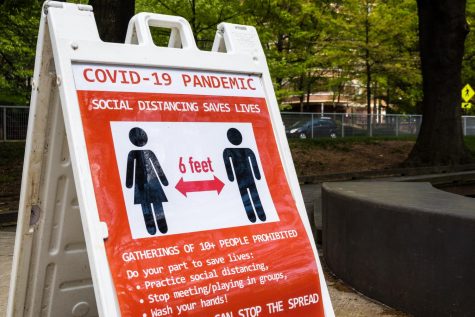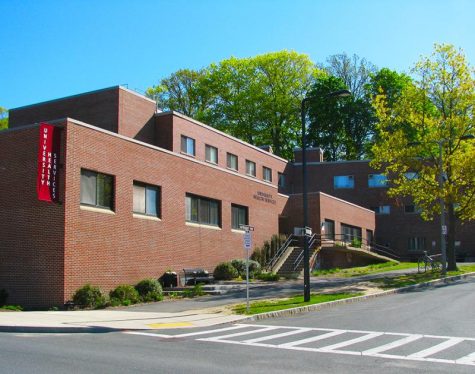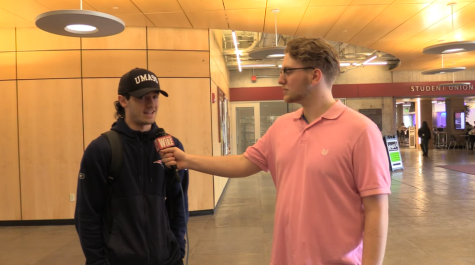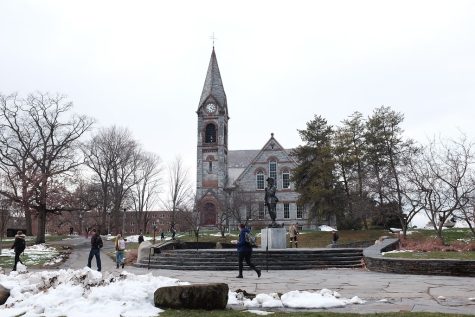Rethinking internet access in the pandemic era
It took a deadly pandemic to reveal just how essential internet access is to millions of people around the world
In the era of COVID-19, the internet is not only practical, but essential. In many ways, the transition to a fully remote online workspace has made work and school easier. You save time and money on travel, you can schedule appointments with ease and best of all, you can perform your job still dressed in your pajamas. The internet has made the typical 9-5 work week obsolete. It has made lectures more convenient for students because every presentation and assignment is readily available online. It almost seems pointless to revert back to working onsite.
Nonetheless, people are still struggling with transitioning to online classes. Several students in my Zoom classes are frequently absent or falling behind on their work simply because of a bad Wi-Fi connection. The internet has basically become an essential survival tool in the era of COVID-19. In order to practice social distancing, it’s imperative that people start living virtually. The internet has become an essential survival tool, yet it’s a flimsy one. Without a stable Wi-Fi connection, you could potentially lose your jobs, fail your classes or miss important appointments with therapists and doctors.
If the Internet is so essential, why do we still treat it as a luxury? Why is the Internet not as invaluable as food and shelter?
This is a problem that, much like U.S healthcare and criminal justice systems, negatively affects low-income households. The price of wi-fi on an AT&T plan rests between $40-50 per month. This does not include the price of routers and other equipment fees. According to a study by RENTCafé, the average price of rent in a major city like Boston ranges from $3,000 to $4000 a month. If you’re raising a family on a minimum wage job, which is $12.75 per hour in Massachusetts, the internet will only seem like another aggravating expenditure.
This problem hits public schools the hardest, especially during a pandemic. Millions of U.S students from K-12 schools are forced to learn from home, and students in low-income areas struggle the most. School closure already eliminates a multitude of essential services for students, including free meal programs and mental health services.
Most of all, it has created a dilemma for working parents who juggle their jobs with providing education to their kids. Learning from home is nearly impossible, especially without a stable access to the Internet. Without the internet, though, students are doomed to fail.
The “COVID Slide” refers to the decline in student performance since school closures in March. Reading and Math scores at K-12 schools are projected to decline by 25%, according to the Collaborative for Student Growth at NWEA.
The question becomes less about providing more accessibility to the internet, and more about how the U.S can use it as a tool to assist those in need. However, we need to start treating the internet as a public good instead of a commodity. This philosophy also pertains to things like clean water, shelter and other essential items that have been grossly corporatized in the U.S.
The first step is to reframe our perception of the internet and consider how it reflects a much broader issue with American capitalism. When the market dictates every aspect of American life, it only creates more inequality. The goal is to provide accessibility for all citizens during the pandemic. This is especially important when it comes to education, because schools and universities should not allow their students to fail simply because the students lack a sufficient Wi-Fi connection.
It may not be possible to overthrow conglomerates like Comcast and AT&T, since they essentially control the internet market. However, it is possible to use hotspots as a way to equally distribute Wi-Fi to those who need it the most. It is possible to create a safe, efficient environment where students and children can work and study for classes. In the era of COVID-19, we need to treat the internet as more than just a useful tool. The internet is a basic human right.
Email Matt at [email protected]











